Australian solar companies are struggling to find workers, leaving some forking out as much as 30% above normal salaries to find candidates, with others seriously revising their corporate strategies.
Andy McCarthy, CEO of RACV Solar said his company – which has one of the industry’s largest in-house teams – has certainly grappled with the issue. “Everyone has,” he told pv magazine Australia.
McCarthy said the shortages are so pervasive the best members of his team are getting approached weekly by companies looking to recruit.
The situation has led RACV Solar to pursue a range of measures. In April, the company acquired the Cola Solar, having bought Great Ocean Solar and Electrical not long before. These were, McCathy said, “capability acquisition as much as pipeline acquisitions.”
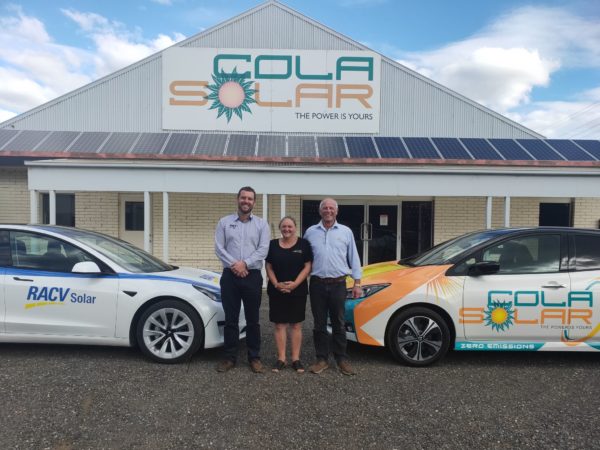
RACV Solar
Which is to say, their workforces were among these companies most valuable assets. This approach, McCarthy noted, requires not only strong due diligence but is really only available to companies big enough to fork out major capital.
A sentiment Kosta Bourandanis, co-founder of industry group Solar Cutters, echoed, telling pv magazine Australia that while big companies have been able to cope, smaller companies are struggling and some are even stalling, unable to find enough workers to keep up with demand.
Platinum Solar Designs, a small and exclusively in-house solar company based on the New South Wales south coast, is one such example. “We’re stuck and we’ve been stuck now for about two years,” general manager Scott Mason, who formerly founded and owned Australian Solar Designs, told pv magazine Australia.
The problem with accreditation
The system of Clean Energy Council (CEC) accreditations is where Mason thinks the real heart of the issue lays. To be precise, it isn’t so much that Mason is struggling to find staff (though that is also true), but rather that his business can’t keep staff.
The primary reason for this retention problem, he says, is that as soon as young electricians finish their apprenticeships, they can become CEC accredited installers within a matter of days. With this accreditation, they can earn much more money subcontracting for big solar companies like Sunboost and Arise Solar.
Why work for $45 an hour, Mason said, when it’s possible to earn as much as $1600 per job installing as a sole trader?
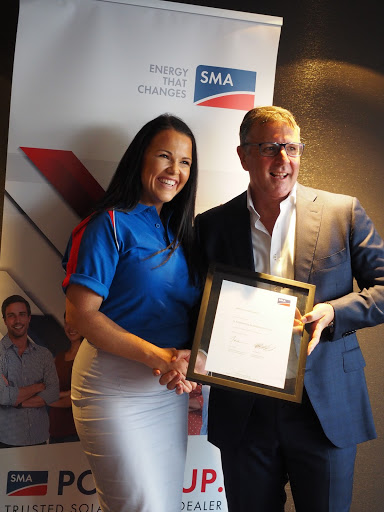
Image: pv magazine/Natalie Filatoff
His company now has to watch the amount of sales it makes because it refuses to use subcontractors, a practice Mason believes disables proper quality control. “My business cannot grow because I’ve only got a certain amount of CEC accredited people within my business and at the end of the day, it falls on that number. I can only do so many solar installations a week because I’ve only got so many solar installers that are CEC accredited.”
‘Quality of workmanship is getting worse’
He believes this system where it is easy and lucrative to work as a sole trader is depressing the quality of the solar industry in Australia. Newly finished apprentices, even if they are legally permitted through the current accreditation process, are too inexperienced to be signing off on installs, Mason says, and are the reason why pages like ‘Crap Solar’ exist.
“This a problem the CEC has created,” Mason said. “It’s too easy to get a CEC license.”
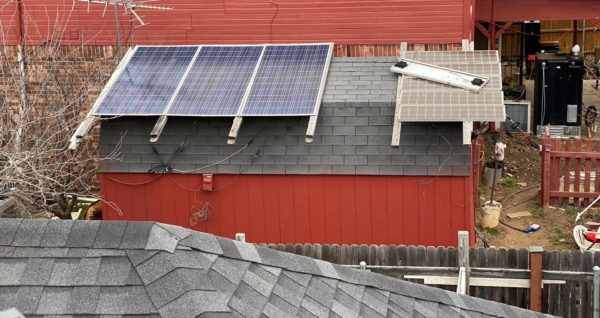
The Clean Energy Council responded by noting Australia’s labour market has widely suffered skills shortages. “So this challenge is not unique to rooftop solar, it’s an issue right across Australia,” Anita Talberg, the CEC Director of workforce development told pv magazine Australia.
“There needs to be a bigger pool of licensed accredited electricians available to work in installation, and this is something the Clean Energy Council is actively tackling on many different fronts.”
Mason believes, however, the Council should be more stringent about who it accredits rather than less. “The industry doesn’t have skill shortage, the problem is they’re off by themselves,” he said. “We’re pushing the market into sole trader type workers.”
Mason believes the industry has found itself in a position where its regulatory system has enabled companies with the most aggressive marketing tactics offering rock bottom pricing to thrive while higher quality teams with in-house staff and aftercare services are being thwarted and cannot grow.
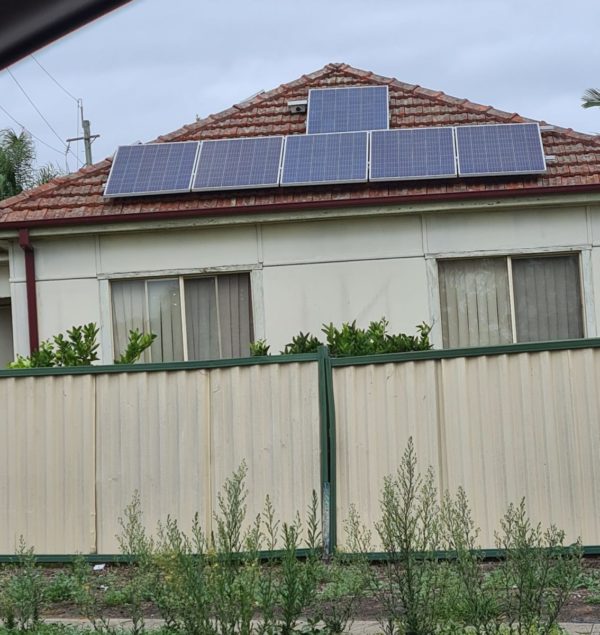
“It’s a monopoly game now,” Mason said. “I don’t see [solar] as an electrical field – it’s crazy I say that and it’s a shame to say that.”
Much of Platinum’s work now involves fixing “stuff ups” from large companies, Mason said. “We’re finding the quality of workmanship is getting worse.”
This quality crisis, he added, is more pronounced in the commercial and industrial (C&I) segment than in residential. The reason for this, Mason believes, is because most installers have been trained as residential electricians and have rarely or never worked on industrial sites – a whole different ballgame to houses.
“We’ve got to lift the quality within our industry. But the problem is, we can’t do that due to the structure the CEC has made.”
Solutions
Mason believes it could help to put a limit on the number of sole trader installations permitted, saying this would force retailers to take more care with ensuring quality. Beyond that, he hopes the takeover of the Clean Energy Regulator as the solar industry’s sole regulator will help ease the issue. He is particularly eager for accreditation processes to be revised.
While RACV Solar’s McCarthy agrees the current state of affairs where sole traders can earn way more churning out installations than working within high quality companies is a sad one, he is somewhat more optimistic about solutions.
He said RACV has spent a long time dwelling on the staff issue – which, like Mason, he sees not as a new problem but a longstanding dilemma. “We identified the problem early,” he said, and devised a set of strategies to develop a “sticky” staff culture. One that goes beyond simply paying a 20% salary premium – a solution which McCarthy thinks does little more than create a false economy.
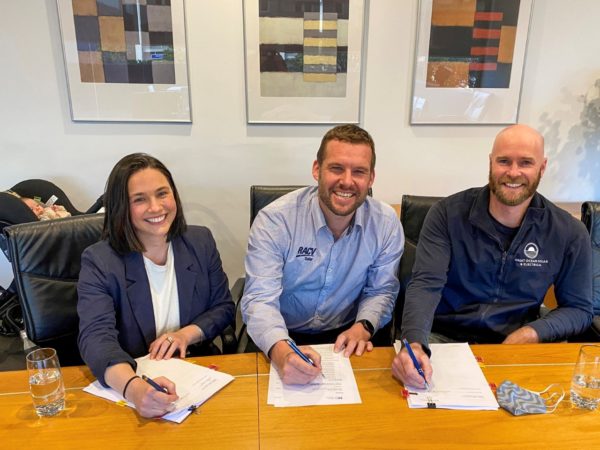
Image: RACV Solar
Outside of expanding its workforce through corporate acquisitions, RACV Solar has invested heavily in programs for staff. One of those programs is for mental health first aid training, enabling willing staff members to become accredited providers. This, he said, demonstrated to staff that the company cared about them as people rather than “workhorses” and has helped instil a sense of pride.
The company has also invested in a skin checking program, noting that installers are particularly at risk of skin cancer since they spend their days outside. Finally, RACV Solar has a program to identify future leaders among its ‘blue collar’ workforce. That is, it nominates internally for leadership, giving staff a clear pathway up the ranks.
“You’ve got to be really careful to nourish the people in the business and not just the numbers,” McCarthy said. The company, he added, has spent a lot of time sitting down with staff, doing skills maps and listening to where they want their careers to progress. “You need to show people that if you stay here for ten years, this is the roadmap.”
He also noted, however, that these measures to win staff loyalty aren’t cheap and the business has had to absorb the cost of taking workers off the tools. Enacting these measures has been easier for a company like RACV Solar due to its scale. (For reference, the company has 78 in-house staff currently).
McCarthy said RACV would be “happy to help” smaller solar companies to enact professional development programs to help them retain staff, which he agrees is paramount to building quality within the solar industry.
The measures RACV have enacted have been paying off too – with McCarthy saying the company has lost just one of its workers in the last 18 months.
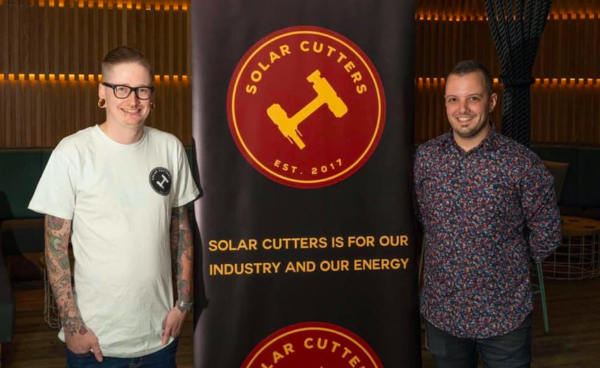
Photo: Solar Cutters
Solidifying a high quality culture
Coming back to Solar Cutters, an industry group premised on developing a culture of quality solar, the group recently launched its formal membership program. It is seeking to formalise its community to better position it to tackle some of these pervasive and growing quality issues.
The group’s co-founder Kosta Bourandanis said it intends to run more training and events within the industry, as well as further educate consumers, raising awareness that cheaper usually does not mean better.
Moreover, Bourandanis says he wants to see the solar industry sell systems more ethically – something which has also been at the fore for Mason, who only sends out actual electricians to sell systems, saying the company needs to be represented by people who understand the ins and outs of what they are selling.
Employing aggressive marketing tactics, professional salespeople, and rock bottom pricing might get more systems on roofs in the short term, but these practices ultimately harm the industry longterm and decay consumer confidence, all three of the industry insiders agreed.
This content is protected by copyright and may not be reused. If you want to cooperate with us and would like to reuse some of our content, please contact: editors@pv-magazine.com.
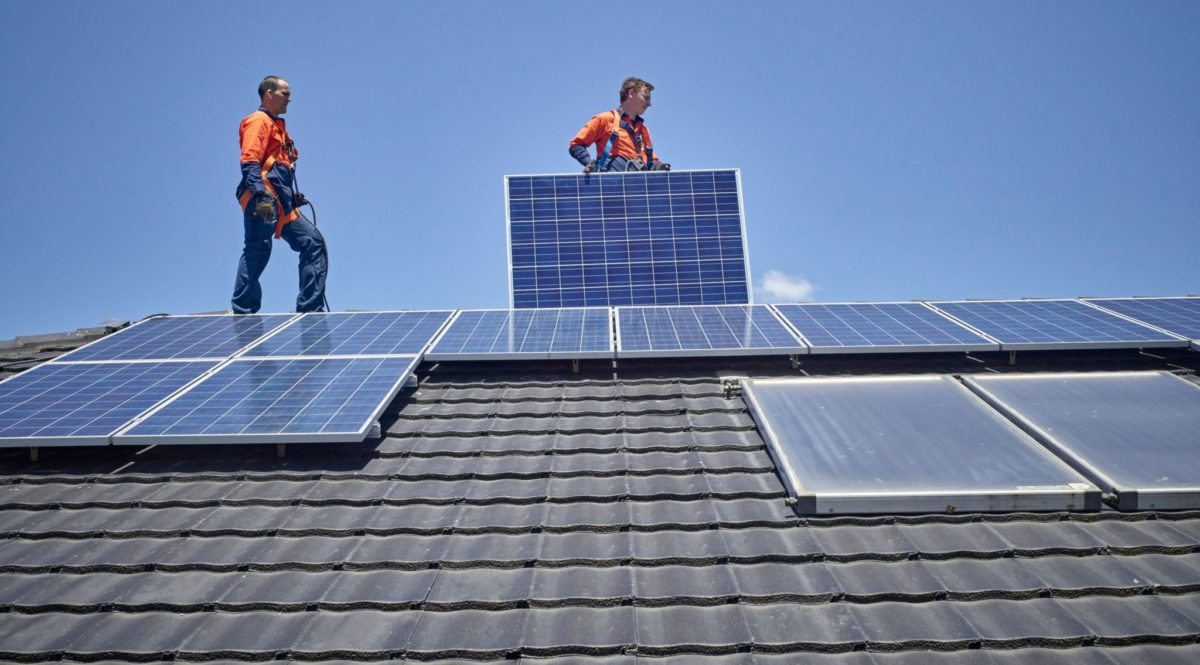








2 comments
By submitting this form you agree to pv magazine using your data for the purposes of publishing your comment.
Your personal data will only be disclosed or otherwise transmitted to third parties for the purposes of spam filtering or if this is necessary for technical maintenance of the website. Any other transfer to third parties will not take place unless this is justified on the basis of applicable data protection regulations or if pv magazine is legally obliged to do so.
You may revoke this consent at any time with effect for the future, in which case your personal data will be deleted immediately. Otherwise, your data will be deleted if pv magazine has processed your request or the purpose of data storage is fulfilled.
Further information on data privacy can be found in our Data Protection Policy.